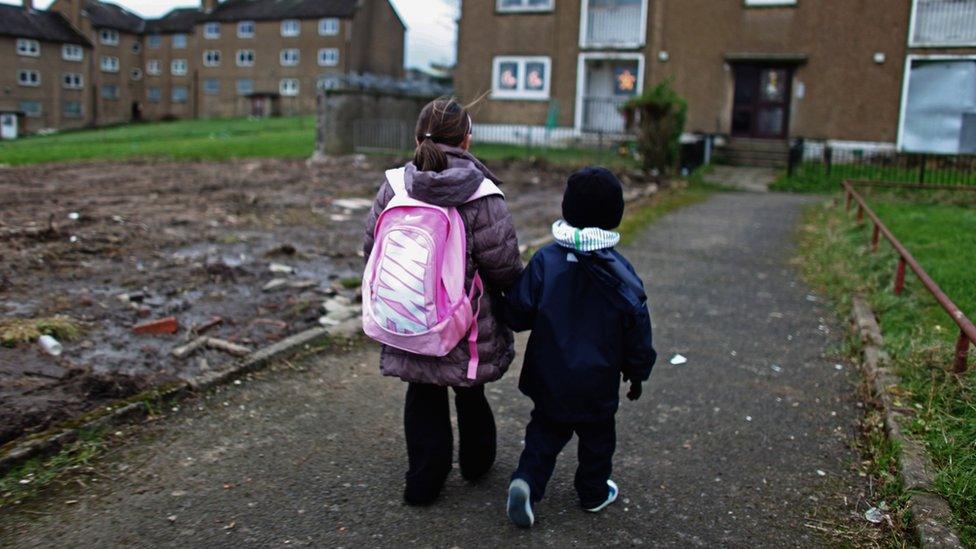Call to extend Glasgow child poverty scheme
- Published

The scheme tackling child poverty in Glasgow has been running since 2010
Vulnerable Scottish families could gain more than £2.3m a year if a Glasgow child poverty scheme is extended, according to the Scottish Greens.
The party said more than 5,000 financially vulnerable families could benefit if the scheme was rolled out across the rest of Scotland.
The Healthier Wealthier Children project focuses on advising families on how to maximise their income.
NHS Scotland has been running the scheme, external since October 2010.
As of September 2014, it had provided assistance leading to more than £9m of financial gain for families, according to the NHS.
Under the scheme, health workers and midwives help families apply for benefits they are entitled to, but do not claim because of a lack of understanding or a hesitancy to approach the benefit authorities.
'Massive impact'
Scottish Greens health spokeswoman Alison Johnstone said: "The Healthier Wealthier Children project in Glasgow has helped vulnerable families gain an average of over £1,000 and after pushing her in parliament, the health secretary [Shona Robison] has already agreed to roll this out, but we need to start seeing some action now."
She added: "The healthier, wealthier children campaign has been an outstanding success.
"Between its launch in October 2010 and May 2016, a total of just more than 11,000 referrals to money advice services were made across the NHS Greater Glasgow and Clyde area, with a total annual financial gain of £11.6m.
"Some families gained as much as £3,400, which obviously has a massive impact on their quality of life, so the faster this can be rolled out, the better for Scotland's 5,000 financially vulnerable families."
Income maximisation
Health Secretary Shona Robison said: "I very much welcome the contribution that is made by health visitors, midwives and others through the healthier, wealthier children project, which we funded.
"We must ensure that everybody - NHS staff and their partners in income maximisation - sees tackling health inequalities as part of their role.
"I can commit to supporting the roll-out of the project; we can build it in through the workforce plans.
"The multidisciplinary model for primary care with link workers and others lends itself well to tackling health inequalities and to income maximisation."